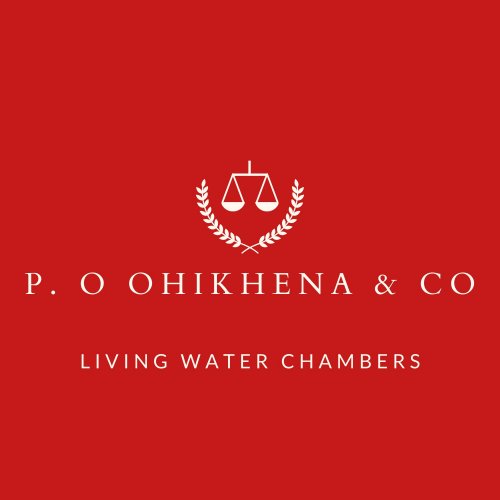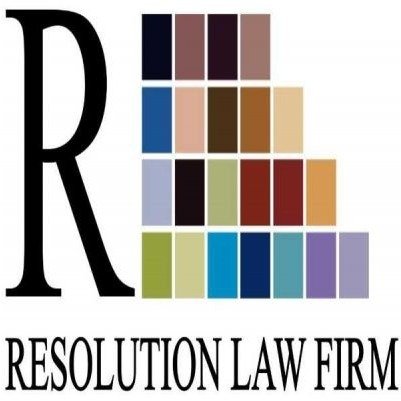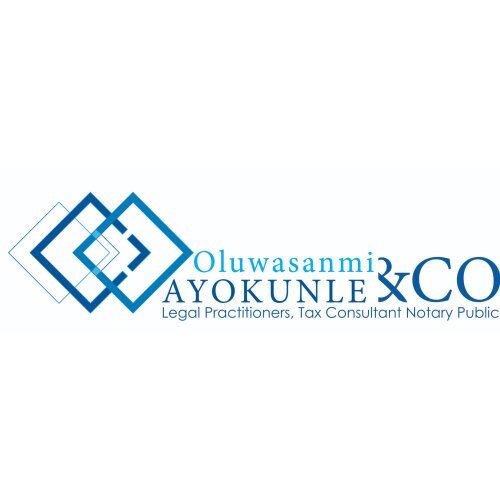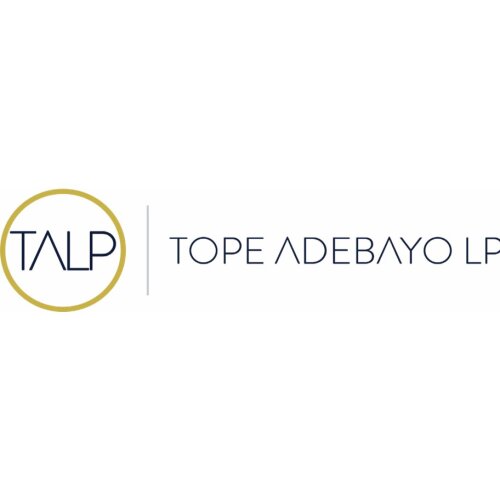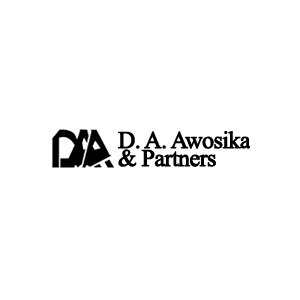Best Sanctions & Export Controls Lawyers in Ikeja
Share your needs with us, get contacted by law firms.
Free. Takes 2 min.
List of the best lawyers in Ikeja, Nigeria
About Sanctions & Export Controls Law in Ikeja, Nigeria
Sanctions and export controls are legal mechanisms used by governments and international bodies to regulate the movement of goods, services, technology, and funds across national borders. In Ikeja, Nigeria, these laws are primarily managed to comply with both national security objectives and international obligations. Sanctions may restrict transactions with certain countries, governments, organizations, or individuals, while export controls manage which products or technologies can be sent abroad, especially those that have potential military or dual-use applications. Businesses and individuals operating in Ikeja must be aware of and comply with these laws to avoid significant penalties.
Why You May Need a Lawyer
Sanctions and export controls can be complex and challenging to navigate, especially as they often involve rapidly changing local regulations and shifting international policies. Common situations where legal assistance may be crucial include:
- Engaging in international trade or cross-border business activities
- Facing investigations or enforcement actions related to alleged violations of sanctions or export controls
- Seeking licenses or authorisations for controlled exports
- Acquiring or selling goods or technology that may have dual military and civilian uses
- Responding to compliance audits from Nigerian or international regulators
- Dealing with frozen assets or blocked transactions
Legal experts in this area can help interpret the law, reduce your risk of inadvertent violations, and represent your interests if challenges arise.
Local Laws Overview
In Nigeria, sanctions and export controls are governed by several key statutes and regulations, as well as international commitments:
- The Nigerian Customs and Excise Management Act regulates the import and export of goods, prescribing licensing requirements and restrictions for certain items.
- The Money Laundering (Prohibition) Act addresses the movement of funds and aims to curb terrorist financing and related financial sanctions breaches.
- The Central Bank of Nigeria provides guidance and regulations for financial transactions in line with United Nations and African Union sanctions lists.
- Export controls for certain goods, such as crude oil, minerals, and technology, are subject to additional oversight and require appropriate licensing from relevant government bodies.
- Violations can result in severe penalties, including fines, imprisonment, confiscation of goods, and business restrictions.
Businesses and individuals in Ikeja should stay updated with ongoing regulatory changes and ensure robust compliance programs to address both Nigerian and international requirements.
Frequently Asked Questions
What are economic sanctions?
Economic sanctions are restrictions imposed by a government to limit or prohibit trade, financial transactions, or other dealings with specific countries, entities, or individuals, often for political or security reasons.
Who enforces sanctions and export controls in Nigeria?
In Nigeria, several agencies are responsible for enforcement, including the Nigerian Customs Service, Central Bank of Nigeria, Financial Intelligence Unit, and relevant ministries overseeing trade and industry.
Do I need a license to export goods from Ikeja?
Some goods and technologies, particularly those with potential military use or sensitive technology, require export licenses issued by government authorities. It is important to verify if your goods are controlled before exporting.
What happens if I violate sanctions or export controls?
Violations can lead to severe consequences, including large fines, asset seizures, loss of export privileges, and criminal charges with possible imprisonment.
Can an individual be subject to sanctions in Nigeria?
Yes, both companies and individuals can be named in sanctions lists and be subject to asset freezes, transaction bans, or other restrictions.
Are there restrictions on sending money abroad from Ikeja?
Yes, financial transactions are regulated, especially with countries or individuals on sanctions lists. Banks and financial institutions are required to screen transactions and may block those that raise red flags.
How can I check if a person or business is on a sanctions list?
You may consult official government publications, international lists from bodies like the United Nations, or seek legal assistance for comprehensive screening.
What is considered a dual-use item?
A dual-use item is a product, software, or technology normally used for civilian purposes but which can also have military applications.
Do international sanctions apply in Nigeria?
Yes, Nigeria often implements United Nations Security Council sanctions and may enforce additional unilateral or multilateral sanctions aligned with its foreign policy.
What should I do if my goods are detained at the border?
You should seek advice from a qualified lawyer or customs expert immediately to understand your rights, the reason for detention, and possible steps to resolve the issue.
Additional Resources
For further information and guidance, consider contacting the following authorities and organizations:
- Nigerian Customs Service - Handles import and export licensing and enforcement
- Central Bank of Nigeria - Oversees financial compliance and currency controls
- Nigerian Financial Intelligence Unit - Monitors financial transactions in line with anti-money laundering and counter-terrorism requirements
- Nigerian Export Promotion Council - Provides advice and licensing for exporters
- Federal Ministry of Industry, Trade and Investment - Offers resources and policy guidance for businesses
Professional legal associations in Lagos State may also assist with referrals to experienced sanctions and export controls lawyers.
Next Steps
If you think you may need legal assistance regarding sanctions or export controls in Ikeja, follow these recommended actions:
- Assess your situation and gather all relevant documents, such as transaction records, contracts, and correspondence.
- Contact a qualified lawyer with experience in sanctions and export controls matters to review your case.
- Stay informed about regulatory updates and maintain a record of compliance measures undertaken by your business or as an individual.
- Reach out to relevant government authorities or industry associations for additional support and clarity on specific restrictions or procedural requirements.
A proactive and informed approach, with the support of legal expertise, can greatly minimize the risk of inadvertent violations and ensure that your international business activities remain compliant with Nigerian and international law.
Lawzana helps you find the best lawyers and law firms in Ikeja through a curated and pre-screened list of qualified legal professionals. Our platform offers rankings and detailed profiles of attorneys and law firms, allowing you to compare based on practice areas, including Sanctions & Export Controls, experience, and client feedback.
Each profile includes a description of the firm's areas of practice, client reviews, team members and partners, year of establishment, spoken languages, office locations, contact information, social media presence, and any published articles or resources. Most firms on our platform speak English and are experienced in both local and international legal matters.
Get a quote from top-rated law firms in Ikeja, Nigeria — quickly, securely, and without unnecessary hassle.
Disclaimer:
The information provided on this page is for general informational purposes only and does not constitute legal advice. While we strive to ensure the accuracy and relevance of the content, legal information may change over time, and interpretations of the law can vary. You should always consult with a qualified legal professional for advice specific to your situation.
We disclaim all liability for actions taken or not taken based on the content of this page. If you believe any information is incorrect or outdated, please contact us, and we will review and update it where appropriate.




